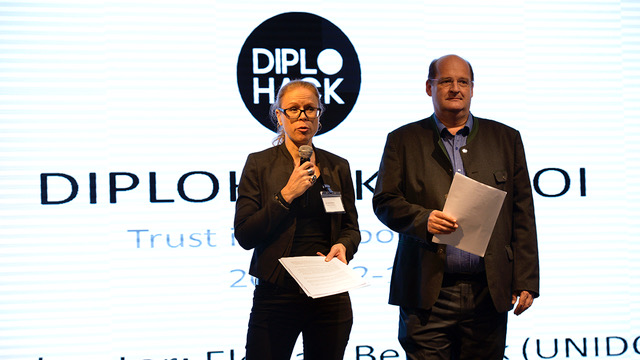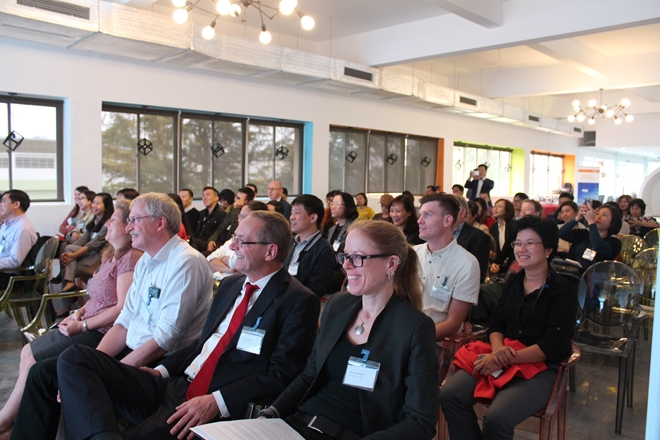Vietnam suggested building trust in the Food Chain
PSNews - How to inspect and monitor food origins? Hopefully, the experiences shared by experts from the Netherlands, Denmark and Sweden will help answer the question.
- The 4th International Food Festival 2016 held in Hanoi
- Pho with beef meatballs among best street foods in Asia
- Vietnam Food Expo 2016 kicks off in HCM City
Role of press and media
Food plays an important role in our daily life. The higher income people have, the more they are concerned about their health. People also care for not only the quantity or taste of food but also the reliable origin of food or food safety.
The embassies of Sweden, the Netherlands and Denmark held a Diplohack workshop theme " How to build trust in the Food Chain" on December 14th, for the first time in Hanoi.
 |
| Ms. Camilla Bjelkas, cultural officer at the Swedish Embassy sharing experience at the workshop |
According to the Hanoi Municipal Department of Health, to meet the daily need of millions of people for food, Hanoi has about 60,000 food businesses; as well as more than 400 markets and 90 supermarkets. But, when purchasing food, people do not really know which food suppliers they can trust.
At the workshop, non - governmental organizations (NGOs), Diplomats, technology experts and food producers amongst consumer protection groups discussed and developed ideas to promote trust in the food chain.
Ms. Camilla Bjelkas, cultural officer at the Swedish Embassy said that one of the Sweden's experiences in ensuring food safety is contributions of media and press agencies.
The media and press well performed in popularizing information about food quality, raising public awareness of food security in general and food safety in particular. In addition, these agencies can help food management units and consumers detect dirty food and food of unknown origins.
Currently, clean and safe food is one of the priorities of modern consumers. To ensure their rights to safe food, consumers should report press and media on food situations. All issues relating to low-quality, unsafe and fake food should be brought to light, avoiding passive behavior.
"From Farm to Fork"
Vietnam is on the list of the countries with high rates of cancers in the world. According to experts, one of the reasons for the situation is unsafe food. Therefore, many business in the food sector are realizing the concept "From Farm to Fork".
Sharing her practical experience, Ms. Camilla Bjelkas said: " Around 20 years ago, Europe experienced some major crises regarding food and animal feed, caused in part by the mad cow disease. The crisis led to a profound reform in the European Union's food safety policy.
 |
| Participants at the Diplohack |
This was the start of the strategy 'From Farm to Fork", which has ensured a high level of safety for all food products in both EU production and distribution. She also provided some typical food scandals for illustration.
A producer in Sweden claimed that they only sold eco - friendly and locally produced meat. However, in 2016, results of the investigation by the National Food Agency showed that, its products were meat imported from other countries. In other cases, they used horse meat instead of beef; fake olive oil, fake honey and many other low - quality products.
Mr. Arie Veldhuizen, Agricultural Counsellor at the Embassy of the Netherlands said: "Vietnam needs a value chain to guarantees food safety. Therefore, relevant agencies should together be connected and all phases of the value chain should be scrutinized.
According to a representative of the Ministry of Agriculture and Rural Development, Vietnam should establish a clear legal framework to build a sustainable value chain of food safety.
Vietnam should cooperate and exchange experiences with developed countries as well as set up reliable food management agencies, shape food quality monitoring mechanisms and frequently check food quality. Meanwhile, the press and media and wise consumers will contribute significantly to eliminating the situation of dirty food and food of unknown origins, for the health and the future of the Vietnamese race.

